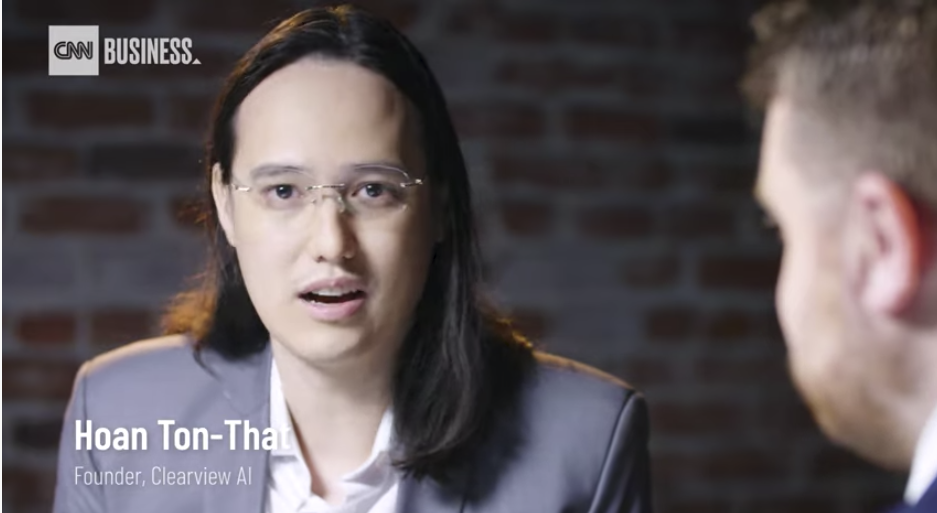
The founder of Clearview AI discusses the facial recognition technology on CNN Business.
ACLU Slaps Lawsuit on Clearview AI for Privacy Invasion of Illinoisans
Back in January of this year, Seeflection.com covered a story from the New York Times about Clearview AI. It was reported the company had been amassing a database of more than 3 billion photos scraped from websites and social media platforms including Facebook and Twitter. And every person in the photos were residents of Illinois.
The American Civil Liberties Union sued Clearview AI on Thursday, arguing that the facial recognition startup violated the privacy of those residents. Ryan Mac and Caroline Haskins of buzzfeednews.com has a story that reports on the past infractions and current state of legal issues Clearview AI is facing.
In describing a “nightmare scenario” in the complaint filed in Illinois state court, the ACLU and other groups representing domestic violence survivors, sex workers, and immigrants said they were suing to put an end to Clearview’s “unlawful surreptitious capture and storage of millions of Illinoisans’ sensitive biometric identifiers.” The lawsuit alleges that the facial recognition startup violated the state’s Biometric Information Privacy Act (BIPA), a 2008 law that prevents companies from collecting or storing fingerprints or scans of citizen’s faces without their consent.
“We’re not seeking monetary damages, only injunctive relief, he said. “We want to see Clearview delete the faceprints it illegally captured and also stop capturing them in the future.” Nate Freed Wesler, Attorney with ACLU.
This is not the first governmental agency that has become alarmed at the invasion of privacy by high tech and in particular facial recognition software. From San Francisco to Boston, municipal, county, and state lawmakers have addressed the overreach this tech gives to enforcement officials. Even during this Covid-19 pandemic people are concerned that social distancing is just a way to keep from confusing or overworking the facial recognition cameras in public places.
In February, a BuzzFeed News investigation found that Clearview had provided its facial recognition software to more than 2,200 federal agencies, police departments, and private companies, despite its CEO’s claim that the tool was “strictly for law enforcement.”
Illinoisans’ faces have been shared by over 2,000 agencies and police departments. Not to mention when the company sold the information to private companies to boost advertising.
In response to the proposed temporary injunction, Clearview AI recently said it would restrict its use of data from Illinois citizens and would cease relationships with all private companies.
In past interviews, Clearview CEO Hoan Ton-That has conceded that even if once-public photos are taken down or made private, they still remain in the company’s databases.
“It is absurd that the ACLU wants to censor which search engines people can use to access public information on the internet,” Ekeland told BuzzFeed News. “The First Amendment forbids this.”
The BuzzFeed article delves further into the background on Clearview AI and their upcoming legal fight with the ACLU.
read more at buzzfeednews.com







Leave A Comment